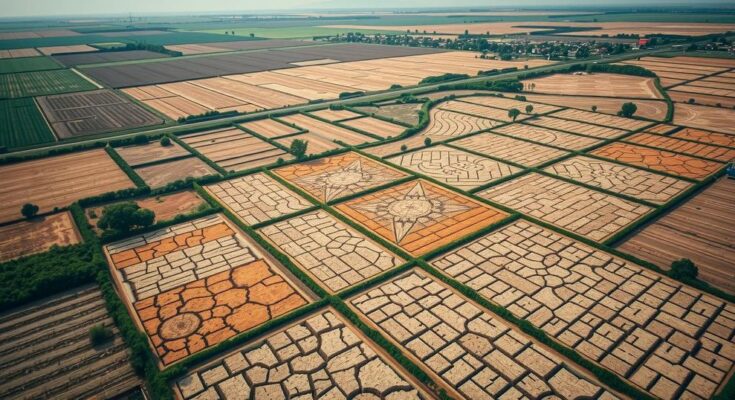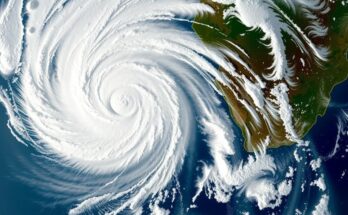The Global Commission on the Economics of Water (GCEW) warns that climate change is severely affecting freshwater supplies, putting over half of global food production at risk by 2050. The report highlights the declining total water storage affecting nearly three billion people and emphasizes the need for international cooperation to implement sustainable water management and agricultural practices.
A recent report from the Global Commission on the Economics of Water (GCEW) indicates that climate change has severely compromised the reliability of the world’s fresh-water supplies, with profound implications for global food production. It is projected that without significant intervention, more than half of the food produced worldwide could be at risk by the year 2050 due to shifting rainfall patterns and adverse climatic conditions. The GCEW, established in 2022 by the Netherlands, highlights that nearly three billion people currently reside in areas predicted to experience declining water storage, putting immense pressure on densely populated regions such as northwestern India, northeastern China, and parts of southern and eastern Europe. Agricultural yield risks are staggering; the report estimates that global cereal output could diminish by as much as 23 percent if prevailing trends persist. This alarming trend is exacerbated by rising temperatures that trigger a vicious cycle of diminishing “green water”—the moisture stored in soil and vegetation—which accounts for approximately half of the planet’s rainfall. Economic ramifications are also significant; the GCEW forecast an average GDP reduction of 8 percent for high-income nations and up to 15 percent for lower-income countries by 2050 due to the intertwined effects of altered precipitation, increasing temperatures, and inadequate access to clean water and sanitation. In response to these alarming projections, the report advocates for a collaborative, multi-national approach to treat the water cycle as a global common good. “We are going to have to set common goals for water sustainability,” stated Singapore’s President Tharman Shanmugaratnam, co-chair of the GCEW, emphasizing the necessity for a global water pact to coordinate efforts effectively. The report also urges the termination of harmful subsidies in water-heavy sectors and their reallocation to promote water conservation efforts, specifically addressing the needs of marginalized communities. Ngozi Okonjo-Iweala, Director General of the World Trade Organization and another co-chair of the GCEW, articulated the pressing need to redirect the approximate $600 billion in annual agricultural subsidies that incentivize excessive water use and to reconsider the appropriateness of cultivating water-intensive crops in unsuitable regions.
The threat posed by climate change to freshwater resources is becoming increasingly evident, necessitating immediate global attention. This report underscores the links between climate patterns, water scarcity, and agricultural production, illustrating the dire state of the global water cycle amidst rising temperatures. The GCEW’s report further illustrates that with inadequate freshwater resources, regions that are already vulnerable could face catastrophic consequences to their agriculture and economies, demanding international cooperation for sustainable management of water resources.
In conclusion, the GCEW report serves as a crucial wake-up call regarding the urgent need for global collaboration to tackle the impending water crisis exacerbated by climate change. It highlights the serious threats to food security and economic stability, and it reinforces the call for sustainable practices and effective policy changes to protect and manage the world’s diminishing water resources. Without these interventions, the risks to global food production and overall economic performance could reach unprecedented levels.
Original Source: www.rfi.fr




